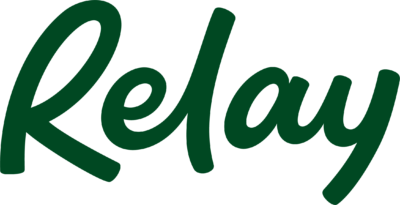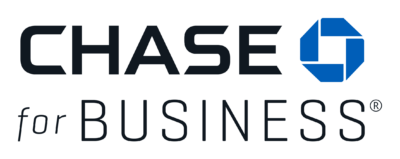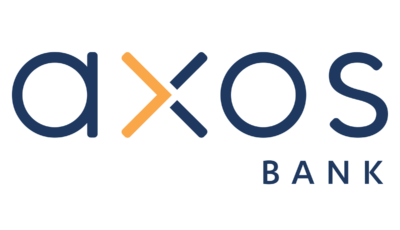If you’re a freelancer, self-employed, or small business owner the best bank accounts for you must be easy to open, have user-friendly apps, and offer all-in-one solutions that streamline your business banking needs. But with so many options out there, what’s the best online business banking solution for you?
We looked at online banking options that offer low to no fees and features that help you better manage your business.
- Tax savings program
- Easy-to-use bookkeeping tools
- No minimum balance requirement and no hidden fees
- 1.5% APY on balances up to $20K with Found Plus (Found’s core features are free. They also offer a paid product, Found Plus)
- Mercury is giving new customers who deposit $10,000 or more within 90 days a $200 welcome bonus
- No monthly or overdraft fees, no minimum opening deposits
- API access and digital tools to automate your banking processes
- FDIC- insured up to $5M* through Mercury’s partner banks and their sweep networks.
Table of Contents
- 1. Found
- 2. Mercury
- 3. Axos Bank
- 4. Relay
- 5. Lili
- 6. Chase for Business
- 7. Bluevine Business Checking
- 8. Bank of America Business Checking
- Reasons To Consider a Business Bank Account
- What To Consider When Opening a Bank Account for Your Business
- What You Need To Open a Business Bank Account
- How To Open a Bank Account for Your Small Business
- FAQs
1. Found
Found is an all-in-one banking solution for self-employed people, from freelancers, gig economy workers, and other self-employed people. It offers bookkeeping and tax tools, along with other financial tools to help you run your business.
Found’s bookkeeping and tax tool features are a real market differentiator, saving you time and money. Found offers real-time expense tracking and categorization with easy receipt capture, and you also get automated tax saving, write-off tracking, and the option to pay taxes directly from Found*.
What we like:
- There are no required monthly fees or minimum opening deposits.
- Sign up in as little as 5 minutes.
- Offers free*, built-in bookkeeping, invoicing, and tax-planning tools.
- No overdraft fees and free incoming domestic wires.
- Easily integrates with apps like Stripe, PayPal, and Etsy.
What we don’t like:
- Accounts need to be opened with your name and SSN, but you can update later with your EIN.
- Cash deposits are limited to $2,000 per week.
Found
Found’s banking solution supports your business with two plan options, both with customer support, tax tools, and bookkeeping features, like automated expense tracking and unlimited custom invoices.
Features:
- Free business checking account
- Free Mastercard© debit card
- Tax savings program
- No minimum balance requirement
- No hidden fees
- Easy-to-use bookkeeping tools
- Automatic expense tracking
- 1.5% APY on balances up to $20K with Found Plus (Found’s core features are free. They also offer a paid product, Found Plus)
2. Mercury
Mercury is a financial technology company that offers everything from corporate credit cards to automated workflows. It focuses on helping early-stage startup companies and small online businesses.
Mercury is giving new customers who deposit $10,000 or more within 90 days a $200 welcome bonus. It is a great alternative for tech-focused businesses and startups. Through their partner banks’ sweep programs, accounts are eligible for up to $5 million in FDIC insurance*, making them perfect for business ventures.
It also helps you manage your banking and financial operations from a single dashboard to make better financial decisions.
What we like:
- No monthly fees or minimum opening deposits
- No overdraft fees
- API access and digital tools to automate your banking processes
- FDIC- insured up to $5 million* through Mercury’s partner banks and their sweep networks
What we don’t like:
- Mercury isn’t part of an ATM network
- No options for depositing cash
- Limited phone support
Mercury
Mercury is giving new customers who deposit $10,000 or more within 90 days a $200 welcome bonus.
This is a great option for founders who to have a powerful banking service with a way to make good use of their financial data.
Features:
- Monthly Fee: $0
- API Access
- Virtual and physical debit cards
- Currency exchange (1% flat fee)
- Offers credit cards to eligible accounts
3. Axos Bank
Axos Bank is a great alternative for people looking to do all their banking online. It has two business checking accounts: Basic Business Checking and Business Interest Checking. Both can be good options depending on your business banking needs.
With both Basic Business Checking and Business Interest Checking, business owners can receive up to a $400 welcome bonus* when they open a business checking account by October 31st, 2024 and use promo code NEW400 on their application.
This is a great option for people who want to do all their banking digitally. With Axos, you can avoid unnecessary fees, have access to a user-friendly app, and earn a welcome bonus at the same time.
Axos Business Interest Checking
Business owners can receive up to a $400 welcome bonus* when they open an Axos Business Interest checking account by June 30 and use the promo code NEW400 on their application.
Features:
- $100 minimum opening deposit
- Deposits are FDIC Insured
- Free domestic incoming wires
- Issues physical cards
What we like about Axos Business Interest Checking:
- Earn up to a $400 welcome bonus*
- Unlimited domestic ATM fee reimbursements
- No minimum balance requirements
- Up to 1.01% APY
- Offers business services like Payroll and Treasury Management
What we don’t like about Axos Business Interest Checking:
- No physical branch access
- APY is not as high as other options
Axos Bank Basic Business
New customers can receive up to a $400 bonus when they apply for a Basic Business Checking account* with Axos Bank.
Features:
- Monthly Fee: $0
- Unlimited Transactions
- Deposits are FDIC Insured
- Free domestic incoming wires
- Issues physical cards
What we like about Axos Basic Business Checking
- Earn up to a $400 welcome bonus*
- No monthly fees or minimum opening deposits
- Unlimited domestic ATM fee reimbursements
- No minimum balance requirements
What we don’t like about Axos Basic Business Checking:
- No physical branch access
- No APY
4. Relay
Relay offers a free online business account that’s suitable for freelancers and online business owners. It integrates with most popular accounting software, and has paid accounts starting at $30 a month if you want features like free outgoing wire transfers and accounts payable features.
What we like:
- No monthly fees or minimum opening deposit.
- Can make cash deposits at AllPoint ATMs.
- Unlimited fee-free transactions and no overdraft fees.
What we don’t like:
- No bill pay feature in Relay’s free plan.
- Long hold time on deposited checks, up to 7 days.
- Limited phone support.
Relay

The Relay app has a user-friendly interface that can integrate a lot of services like Gusto, Plaid, Xero, and Quickbooks. Easily invite your partners and employees to your account for streamlined banking and bookkeeping services.
Features:
- Monthly Fee: $0
- APY: 1% with $1 min. balance
- Up to 20 Checking Accounts
- Issue Physical and Virtual Cards
5. Lili
Lili offers business owners multiple options, from a free business banking plan to paid premium banking solutions. While the free account has comparable features, many of its best features are available with a paid account.
What we like:
- No transaction fees, incoming wire fees, or monthly fees.
- Offers early payment feature.
- Cash deposits at Green Dot network ATMs (no fees at MoneyPass ATMs).
What we don’t like:
- Free plan has limited business tools and features.
- Cash deposits are limited to $1,000 per day, fee of up to $4.95 per deposit.
- Incoming ACH transfers limited to $2,000 per day and $5,000 per month.
Lili

Lili is for self-employed individuals to businesses that are currently scaling. The lack of fees and minimums makes it easy to get started, and the built-in financial management tools can help you save time and money come tax season.
Features:
- Monthly Fee: $0
- APY of 4.15% on paid accounts
- Cashback: Up to 5%
- Deposits are FDIC Insured
- Encryption security on accounts
6. Chase for Business
If you’re a small business owner that isn’t dealing with a lot of cash and wants brick-and-mortar access, Chase for Business might be right for you. There is a $15 monthly fee, but you can waive it by meeting a minimum daily balance of $2,000, linking your account to a private client account, receiving $2,000 in deposits from eligible Chase Merchant Services transactions, or have $2,000 in purchases on your Chase Ink® Business cards.
What we like:
- Large branch and ATM network
- Includes credit card processing
- Unlimited electronic, ATM, and debit card transactions
What we don’t like:
- Must signup in person.
- There’s no option to earn interest.
- Out-of-network ATM fees aren’t waived.
Chase for Business

Chase for Business is a great option if having brick-and-mortar locations is an important for your business. Plus, they also offer convenient virtual services.
Features:
- Monthly Fee: $15 (Waived with a $2,000 minimum balance)
- APY: N/A
- Physical locations if you want in-person banking access
- Access to funds through the Chase App or Chase Business Online
- Access to customer support team for consulting
7. Bluevine Business Checking
Bluevine is a financial technology company with banking services provided by Coastal Community Bank. The main draw of Bluevine is its higher-than-average APY, which is available on free accounts, but to earn the highest APY, you need a paid account at $95 month, which may be too much for many small business owners. Accounts can be opened online or in the Bluevine app.
What we like:
- No monthly fees or minimum opening deposits.
- Unlimited fee-free transactions and no overdraft fees.
- Earn 2.00% interested on account balances up to $250,000. Terms apply.
What we don’t like:
- No fee-free cash deposits.
- Cash deposits at Green Dot locations are capped at $2,000/ day, and deposits at Allpoint ATMs are capped at $5,500/day.
- No joint accounts or employee debit cards.
Bluevine

Bluevine can be used to bank anywhere with a fully online business checking account. It requires no monthly fees, overdraft fees, or transaction fees.
Features:
- Monthly Fee: $0
- APY of 2.00% and up to 4.25% (with Premier, $95 monthly fee)
- No overdraft fees
- No minimum balance requirement
8. Bank of America Business Checking
As one of the largest financial institutions in America, Bank of America offers a range of products, including this online business checking account for people who want some in-person access. There’s a $16/month monthly fee that can be waived in several ways, and it’s ideal for business owners who handle a lot of cash and need to make frequent deposits.
What we like:
- Offers fee-free transactions.
- Good for cash-heavy businesses.
What we don’t like:
- Fee for using out of network ATMs.
- All business accounts have a fee.
- $100 minimum opening deposit.
Bank of America

Bank of America gives you access to thousands of physical locations and ATMs throughout the U.S. It is a great option for those who want a brick-and-mortar option to do their business banking
Features:
- Monthly Fee: $16 (waived for the first 3 months or with a $5,000 average monthly balance)
- APY: N/A
- $0 electronic transaction fees
- High cash deposit limits
- $100 minimum opening deposit
Reasons To Consider a Business Bank Account
If you’re self-employed, there are a few major reasons why you should consider opening up a business bank account. Your business is a separate entity, meaning your business and personal finances should be separated as well. Beyond there, opening a business bank account allows you to build business credit, prepare for taxes, and even automate your bookkeeping.
1. Protect Yourself From Business Liability
One of the few benefits of having your business registered as an LLC is the distinction in your personal and business assets. In case something goes wrong and someone wants to sue your business, they wouldn’t be able to prosecute you at a personal level. This is why it is important to have a separate business bank account, so you aren’t personally liable for business losses.
2. Easier to Track Business Expenses
Tracking expenses can be incredibly tedious, from tracking your mileage as a food delivery driver to tracking office or software expenses. The best business bank accounts make it easy because you simply use the debit card that comes with your account to pay for your expenses and automatically categorizes them for you.
3. Tax Simplification
To be able to legally write off business expenses and tax deductions, your business needs to be legitimate and established. Having a separate business bank account makes it easy for the IRS to distinguish personal transactions from business transactions. The IRS needs to know you are running a legitimate business to validate deduction claims. One of the easiest ways to do it is to have a business bank account where you keep all your business income and expenses in a single place.
4. Adds Level of Professionalism
For new freelancers or small business owners, having a dedicated business banking solution shows clients and customers that you are taking your business seriously. Being able to share custom invoices with your business name and other branded items adds a level of professionalism that may seem small, but it goes a long way.
5. Establishing Business Credit
This is massively important if you plan to grow your business using credit or a loan. Your business bank account shows transaction history and bank statements. This can show a lender, how much revenue your business generates and therefore decide if the business is worth giving out loans or a credit line to. If you’re looking to hire more employees, buy equipment, or help your business cash flow, a favorable business credit history can help with just that.
What To Consider When Opening a Bank Account for Your Business
There are several things to consider when opening a business bank account. Some of the most important ones are features and fees.
Here’s a list of things to consider when opening up a business bank account:
- Monthly fees
- User-friendly app and online banking
- Business features that matter to you, i.e., invoicing and bookkeeping tools
- Interest rates for savings and checking accounts
- Transaction fees
- Minimum account balances
- Overdraft fees
- ATM withdrawal fees
- Wire transfer Fees
- Is it necessary to have a physical location
What You Need To Open a Business Bank Account
Here are some of the things you will need to open a business bank account. It will require a few more documents than if you were opening up a personal account, but overall, it’s an easy process.
Personal Information
- Government-issued photo ID
- Social Security number
- Mailing address
- Personal phone number
- Personal email
Business Information
- Employer Identification Number (EIN)
- Business name and trade name or “doing business as” name, if there is one
- Business address and phone number
- Business entity type
- Date business was established
- Industry and type of business you operate
Business documentation
Depending on the type of business you are running, you will need different business documentation. Although some banks might ask for more, here are some of the most common business documents banks ask for.
- Your business formation documents – this depends on what type of business you are running. If it is an LLC, sole proprietorship, or corporation, each entity will require different documents.
- Ownership agreements
- Business licenses
- Tax savings program
- Easy-to-use bookkeeping tools
- No minimum balance requirement and no hidden fees
- 1.5% APY on balances up to $20K with Found Plus (Found’s core features are free. They also offer a paid product, Found Plus)
- Mercury is giving new customers who deposit $10,000 or more within 90 days a $200 welcome bonus
- No monthly or overdraft fees, no minimum opening deposits
- API access and digital tools to automate your banking processes
- FDIC- insured up to $5M* through Mercury’s partner banks and their sweep networks.
How To Open a Bank Account for Your Small Business
Here are 3 simple steps to take to open up your first business bank account:
1. Select a business checking account
There are several good choices for business bank accounts that don’t charge monthly fees or have any minimum balance requirements. Consider choosing one of these types of accounts that won’t accrue fees or charges against you when just starting up your account
2. Gather all the necessary documents and apply
Most business bank accounts can be opened up online and don’t require you to go in person. The best choices will have expert customer support to help you if you have questions along the way.
What you may need to submit in your application can vary by institution, but they will tell you in advance so you can be prepared.
3. Fund your new business bank account
After your application has been accepted, the next step is to fund your newly opened business bank account. Some banks require no opening deposit, but a lot of them do require anywhere from $25 to $100 to start.
Although a lot of banks will require a $0 opening deposit to start, most of them still require you to fund your account before a certain time frame.
Once the account has been funded, congratulations! You can start making transactions from this account and start building your business transaction history as you go.
| Company | Rating |
|---|---|
| Found | |
| Mercury | |
| Axos Basic Business Checking | |
| Axos Business Interest Checking | |
| Bluevine | |
| Relay | |
| Chase for Business | |
| Lili | |
| Bank of America |
FAQs
Found.com is a great option if you want to have a flexible banking solution that provides invoicing, tax-simplification features, and a user-friendly platform.
Although you might not need a high credit score to open up a business bank account, poor credit and a bad track record in banking could limit your options. If you are worried about being rejected when opening up a business bank account, another option could be smaller banks like credit unions that don’t use the ChexSystems.
Disclaimers
Found is a financial technology company, not a bank. Business banking services are provided by Piermont Bank, Member FDIC. The funds in your account are FDIC-insured up to $250,000 per depositor for each account ownership category. The Found Mastercard Business debit card is issued by Piermont Bank pursuant to a license from Mastercard Inc. and may be used everywhere Mastercard debit cards are accepted.
*Found’s core features are free. They also offer a paid product, Found Plus.
Advanced, optional add-on bookkeeping software available for $19.99/month or $149.99/ year. There are no monthly account maintenance fees, but transactional fees for wires, instant transfers, and ATM apply. Read more here.
*Filing business taxes through Found is applicable for Schedule C filers.
*Mercury is a fintech company, not an FDIC-insured bank. Deposits in checking and savings accounts are held by our banking services partners, Choice Financial Group and Evolve Bank & Trust ®; Members FDIC. Deposit insurance covers the failure of an insured bank. Certain conditions must be satisfied for pass-through insurance to apply. Learn more here.
* To be eligible to earn all or a portion of the cash incentive as part of the promotional offer “NEW400,” an application for a Basic Business Checking account or a Business Interest Checking account must be submitted between 09/30/2023 at 12:00 am PT and 08/01/2024 at 11:59 pm PT. Axos Bank reserves the right to limit each primary account holder or business title to one (1) checking account promotional offer per year. Axos Bank or Axos Bank for Nationwide checking customers or Businesses that have held an Axos Bank or UFB or Axos Bank for Nationwide checking or savings account in the past 12 months under the same title are not eligible for this offer. Promotional terms and conditions are subject to change or removal without notice. Incentive may be taxable and reported on IRS Form 1099-MISC. Consult your tax advisor. After initial requirements above are met, the amount of incentive earned will depend on meeting the additional requirements outlined below:
Small Business Checking bonus up to $400: You must be approved for your new Basic Business Checking or Business Interest Checking account and fund it within 30 days of account opening. An incentive of up to $400 can be earned during the first five (5) statement cycles. A statement cycle is a calendar month consisting of at least one day your account was open during that month. You can earn a maximum of four (4) payouts during the five (5) statement cycles, and the incentive will be deposited into the qualifying account within 10 business days following the end of the statement cycle in which the balance requirement was met.
$75 will be earned for each statement cycle, up to $300 when you meet three requirements: 1) the average daily balance in your Basic Business Checking account or Business Interest Checking Account is between $25,000 and $49,999.99, 2) you have completed ten (10) point-of-sale transactions per month using your Small Business Checking Visa® Debit Card for signature-based purchases with a minimum of $3 per transaction, 3) You must also have bill pay set up and connected to your Basic Business Checking account or Business Interest Checking account. The bill pay transaction minimum is $10.
$100 will be earned for each statement cycle, up to $400 when you meet three requirements : 1) the average daily balance in your Basic Business Checking account or Business Interest Checking Account is greater than $50,000, 2) you have completed ten (10) point-of-sale transactions per month using your Small Business Checking Visa® Debit Card for signature-based purchases with a minimum of $3 per transaction, 3) You must also have bill pay set up and connected to your Basic Business Checking account or Business Interest Checking account. The bill pay transaction minimum is $10.
Your Small Business Checking account must remain open and in good standing at the time the incentive is paid to be eligible. Furthermore, your Small Business Checking account must remain open for 150 days, or an early closure fee of up to $400 may apply.
** The Annual Percentage Yield (APY) is accurate as of 4/22/2024. The interest rate and corresponding APY for this account is variable and is set at our discretion. This is a tiered variable rate account. Interest rates may change as often as daily without prior notice. Fees may reduce earnings


